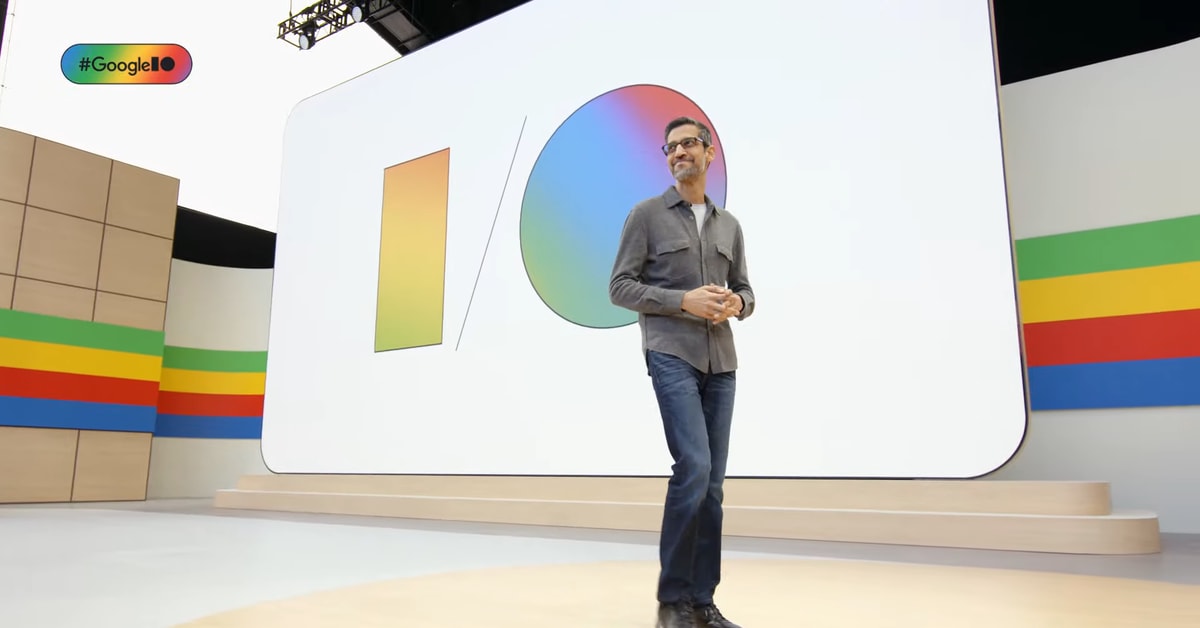
MOUNTAIN VIEW, CA — May 14, 2024
In an event that redefined the boundaries of artificial intelligence in daily life, Google I/O 2024 pulled back the curtain on a groundbreaking suite of AI tools that will soon power everything from video creation to collaborative workspaces.
Held at the Shoreline Amphitheatre, the annual developer conference showcased Google’s increasingly aggressive push into AI as it unveiled major updates across its Gemini ecosystem, introduced an entirely new product called Google Beam, and teased future innovations that could fundamentally shift how users interact with search, workspace tools, and digital creativity.
This wasn’t just a product update — it was Google’s AI coming-of-age moment.
Gemini 2.5: Supercharged Intelligence Now in Your Pocket
The centerpiece of the event was Gemini 2.5 Pro and its lightweight counterpart, Gemini 2.5 Flash — both now available on mobile. These models boast significantly faster response times, greater contextual awareness, and richer multimodal capabilities.
In a live demo, Google showed Gemini effortlessly navigating a live conversation, summarizing email threads, interpreting charts, and even generating marketing strategies in real time. Unlike its predecessors, Gemini 2.5 Live can now handle dynamic, voice-based interactions — think of it as an AI-powered assistant that listens, reasons, and responds like a human collaborator.
Developers in attendance described the experience as “Jarvis meets Google Assistant.” With context retention over multiple queries and seamless integration with Android, Gemini has matured into something more than a chatbot — it's now an intelligent agent deeply embedded in your digital life.
Meet Google Beam: AI That Thinks With You
One of the most talked-about announcements was Google Beam, a new tool aimed at simplifying group decision-making and ideation.
Imagine brainstorming ideas with colleagues across continents — Beam can join in, suggest alternatives, organize thoughts into outlines, and even pull in live data from the web to support your case. It's like having an AI-powered strategist in the room.
With native integration into Workspace and Gemini, Beam is positioned not as a replacement for human creativity but a catalyst. Sundar Pichai called it "a real-time thinking partner designed for teams, not just individuals."
AI in Search: From Finding to Understanding
Google Search, the company’s flagship product, is also undergoing a seismic AI transformation. No longer just a tool for answers, Search is becoming a conversation.
A new feature called “AI Overviews” now lets users explore topics through layered, AI-generated summaries. Rather than presenting ten blue links, Google can now answer complex queries like “Compare Norway’s healthcare model with Germany’s” in a coherent paragraph — sourcing, summarizing, and referencing live data.
Additionally, Deep Research — another new feature — promises to be a game changer for students and professionals. Users can dive into a topic and explore AI-curated resources, complete with citations, contextual notes, and evolving perspectives.
Gemini in Workspace: Your AI Coworker Has Arrived
AI is no longer an add-on in Workspace — it’s at the core. Gemini will now support dynamic features in Docs, Sheets, Slides, and Gmail.
You can now:
-
Generate reports with real-time data in Sheets
-
Auto-design presentation decks in Slides with branded visuals
-
Rewrite emails and proposals in seconds using context-aware tone suggestions
Google even teased “Canvas,” a collaborative AI playground where teams can visualize workflows, plot timelines, and even simulate outcomes based on different business decisions.
Visual AI: Veo 3 and Imagen 4 Push Boundaries
In a move to rival OpenAI’s Sora, Google unveiled Veo 3, a next-gen video generation model. In real-time, Veo created an aerial shot of a beachside town, complete with natural lighting, ocean movement, and shadows that change as the camera pans.
Its sibling, Imagen 4, raised the bar in image generation, producing photos indistinguishable from real DSLR captures — with a promise of copyright-safe output ready for commercial use.
While available only to selected creators through a waitlist, these tools show Google’s intention to lead not just in search and productivity, but in creativity too.
Subscription Plans & Strategy: A Revenue Play with High Stakes
Perhaps the most pragmatic development was the introduction of new AI subscription tiers. While some features remain free, access to advanced Gemini and Workspace AI tools will require paid plans under the Google One AI Premium bundle.
Though some users expressed concern about monetizing core tools, analysts see this as a necessary move. With the rising costs of AI infrastructure, Google is pivoting from innovation-at-any-cost to sustainable revenue models.
For many users, however, the line between free utility and paid power will define their adoption curve.
A Clear Signal to Rivals
This year’s I/O wasn’t subtle. The message was loud and clear: Google is ready to lead — not follow — in the AI race.
While OpenAI continues to make waves, and Microsoft leans heavily on its Copilot ecosystem, Google has now planted its flag across productivity, creativity, and information.
From coders to creatives, students to CEOs — Google's AI suite is no longer about the future. It's already shaping the present.
Conclusion: A New AI Chapter Begins
Google I/O 2024 marks a tectonic shift in the company’s trajectory. What started as experiments in generative text and search enhancements has blossomed into a holistic AI ecosystem.
By integrating AI deeply into mobile, workspaces, search, and creative tools, Google has made one thing clear: the next phase of human-tech interaction won’t just be digital — it will be intelligent, contextual, and deeply collaborative.
And it’s already here.